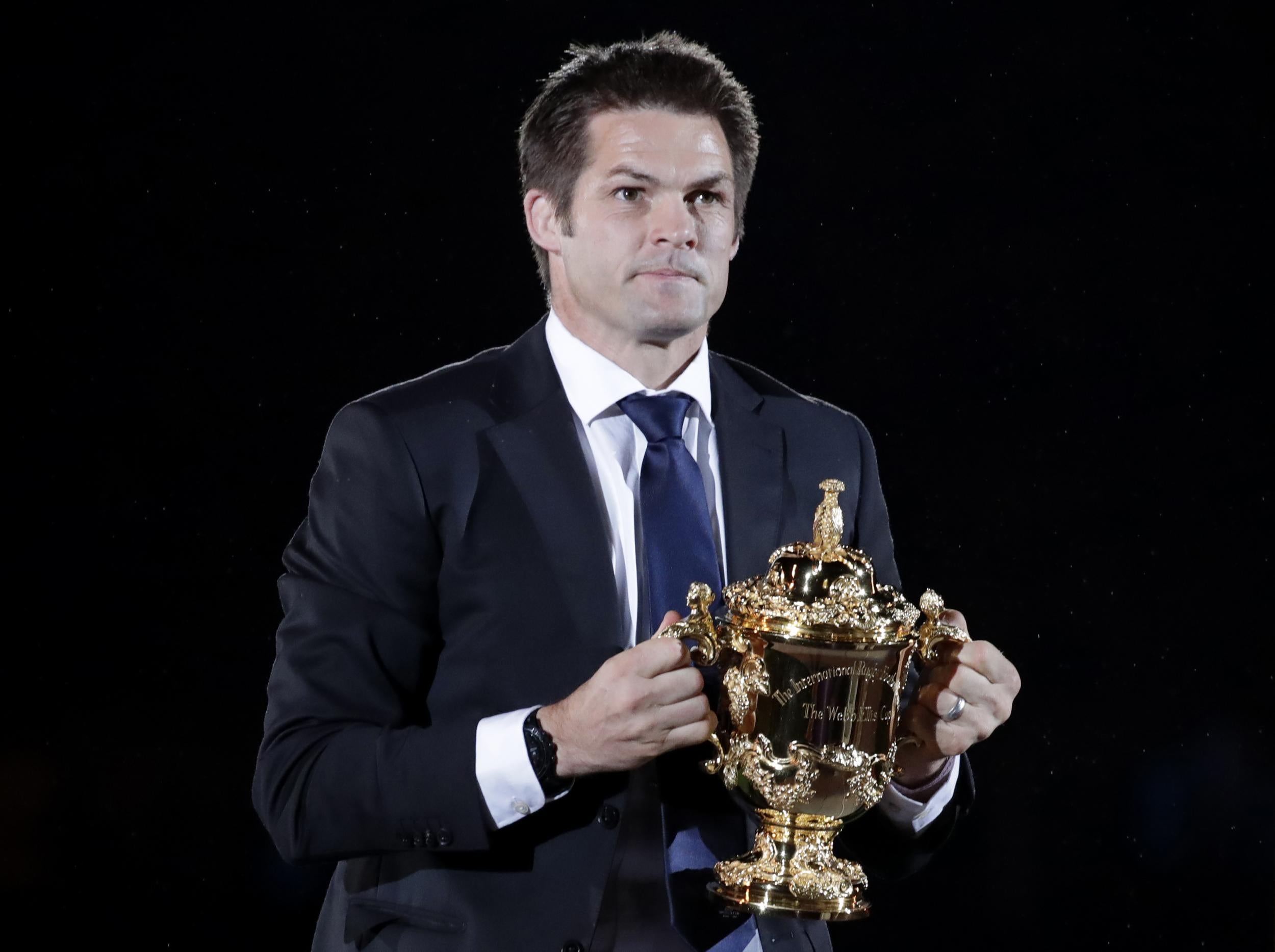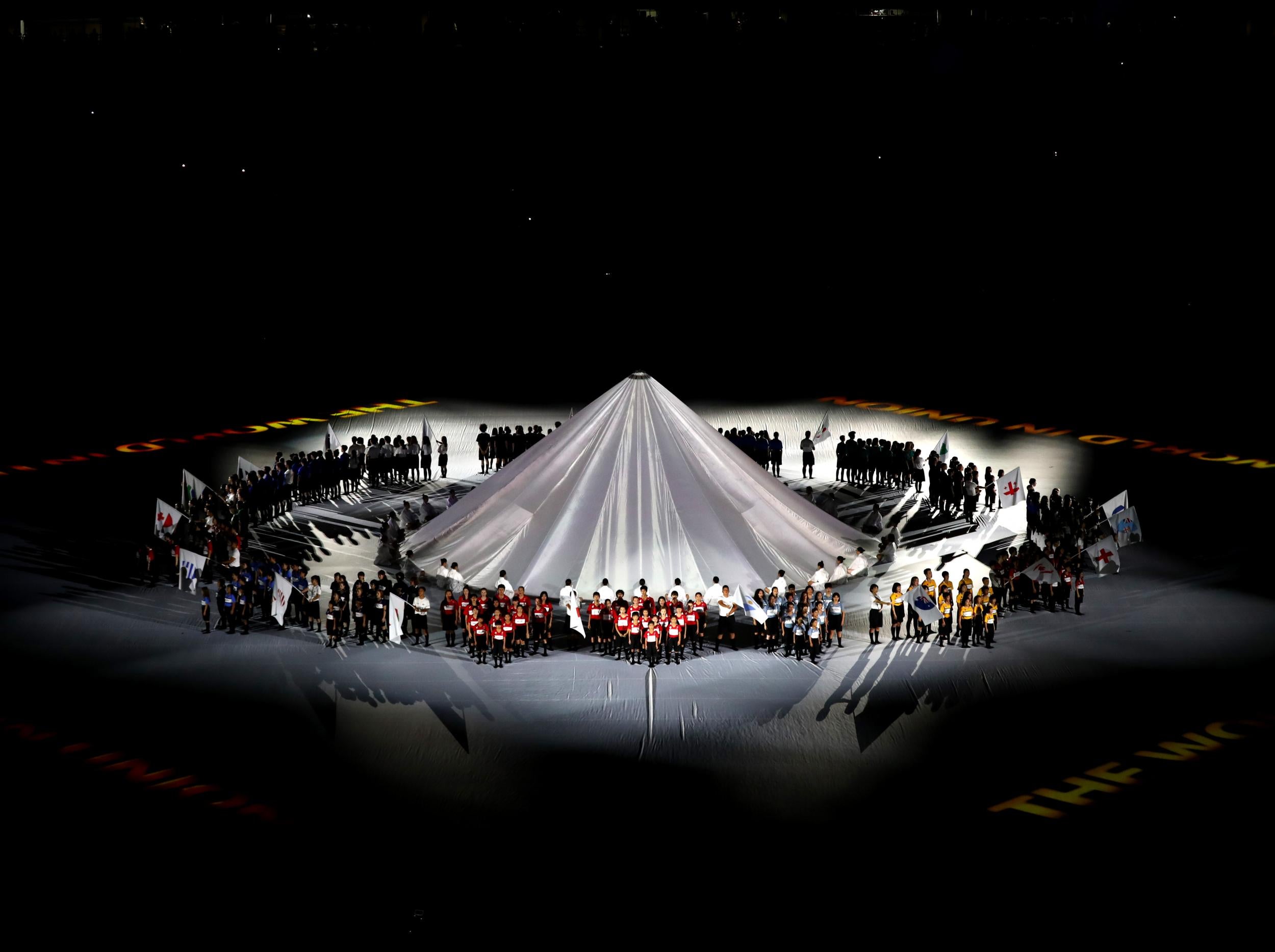Rugby World Cup 2019: Opening ceremony points to sport’s bright new adventure – but will host nation Japan deliver?
Against a backdrop of varying interest and mixed enthusiasm, has World Rugby rolled the dice in taking its crown jewel to the Land of the Rising Sun? We’ll soon find out if the gamble pays off or not

Your support helps us to tell the story
From reproductive rights to climate change to Big Tech, The Independent is on the ground when the story is developing. Whether it's investigating the financials of Elon Musk's pro-Trump PAC or producing our latest documentary, 'The A Word', which shines a light on the American women fighting for reproductive rights, we know how important it is to parse out the facts from the messaging.
At such a critical moment in US history, we need reporters on the ground. Your donation allows us to keep sending journalists to speak to both sides of the story.
The Independent is trusted by Americans across the entire political spectrum. And unlike many other quality news outlets, we choose not to lock Americans out of our reporting and analysis with paywalls. We believe quality journalism should be available to everyone, paid for by those who can afford it.
Your support makes all the difference.“From rugby enthusiasts to fans of Japanese culture,” World Rugby had promised “something for everybody” ahead of the opening ceremony here in Tokyo. On that front the hosts certainly delivered. Kabuki performers clad in elaborate customs and masks? Tick. A miniature-sized Mount Fuji rising elegantly from the centre of the pitch? Naturally. A life-sized Richie McCaw holding the Webb Ellis Cup above his head? You bet.
As opening ceremonies go, it did what exactly it said on the tin. It was the words of World Rugby chief Bill Beaumont, though, that consideration must be given to. “Over the next six weeks we will experience the very best of rugby and the very best of Japan as excitement sweeps this great nation,” he declared, with Crown Prince Akishino – a royal upgrade on 2015’s Prince Harry? – stood by his side. Because, outside of this spectacle, delivered on a typically humid evening in the Japanese capital, you wonder what is really in store for the Rugby World Cup as it unfolds over the coming weeks.
Let’s roll back 24 hours to the heat and hustle of a small, boxy izakaya in Yokohama, situated at the heart of the city’s Noge district. Hunched over a bowl of ramen, chop sticks dipping in and out of the hot broth beneath, Ayako looks confused. It could be something to do with the hapless journalist stood in front of her, stumbling through mispronunciations of the most basic Japanese words, but there’s no doubt of her response when it becomes clear what’s being asked. “Sorry, I don’t watch rugby,” she says, eager to return to her meal. Ayako, a student in the local area, cannot speak for everyone. But she’s certainly not alone.
In this particular corner of Yokohama, there’s little to suggest that the World Cup has touched down on Japanese shores. There’s no rugby-themed paraphernalia in sight. On the TV, highlights from the sumo wrestling at Tokyo’s Ryōgoku Kokugikan draws the interest of those sat at the bar. Outside and beyond, posters and adverts promoting the tournament are hard to come by. Talking to the locals themselves, there’s a distinct absence of anticipation and excitement. Many are aware but simply not bothered. When it comes to sport, their interests lay elsewhere.
The numbers confirm this. According to a recent white paper, there are around 100,000 registered rugby players in Japan – this for a country with a population of 126.8 million. Volleyball has four times that number, football ten. The average match in the domestic rugby league draws crowds of around 5,000.
Could it be, then, that the World Cup is simply a logistical dry-run for the Olympics next year? The disproportionate focus on the two events would suggest so. The Olympics logo catches your eye wherever you go in the capital. TV screens on trains in and out of the city flicker repeatedly between adverts for the Games, with gold medallist hopefuls such as Naomi Osaka, Kaori Icho and Kiyo Shimizu given an abundance of airtime.
“There is definitely more focus on the Olympics, they have been talking about that for years,” Jeff, a sumo ticket seller who lives an hour outside Tokyo, tells The Independent. “Besides a few friends I have who post about rugby pretty much non-stop, I’ve only seen large-scale awareness of the World Cup in the last few months or so of my daily life.” Tokyo 2020, it seems, is the overwhelming source of pride for the country.

Set against this backdrop, has World Rugby rolled the dice in bringing its crown jewel to Japan? At a time when international rugby remains the preserve of an elite core of financially-endowed countries, officials will argue that this year’s tournament represents one thing more than anything else: opportunity.
As a tier-two nation knocking on the door of its bigger rivals, Japan can lead the way in breaking down such barriers, bridging the gap and expanding the sport beyond its traditional homelands. Already we’ve seen signs of the Japanese public’s willingness to embrace the culture and colour of the Rugby World Cup. The sight of 15,000 locals signing the Welsh national anthem to welcome Warren Gatland’s side to Kitakyushu is exactly the sort of marketing-friendly, viral content that organisers need to drive rugby into the national consciousness.

The success of the Cherry Blossoms in the tournament will prove similarly crucial. The average league attendances almost doubled after Japan beat South Africa in 2015. Imagine, then, what an impressive running on home soil will do for the sport here. It’s certainly not beyond the realm of possibility. Japan moved up to ninth in the world rankings this summer – a record-equalling best – after claiming victory in the Pacific Nations Cup. The side has come a long way over the years and, with the backing of the crowds, there’s every reason to believe they could edge either Ireland or Scotland to second place in Pool A.
If the promise Bill Beaumont made on Friday night is delivered, Japan and the watching world is in store for quite the treat over the coming months. Yes, the decision to host rugby’s grandest event here may be a gamble – but isn’t the opportunity now on offer what sport is all about? Inspiring, capturing the imagination, pulling in new fans, sparking a passion that previously wasn’t there. The Japanese have quite the challenge on their hands but if they can’t manage it, then who can?
Join our commenting forum
Join thought-provoking conversations, follow other Independent readers and see their replies
Comments